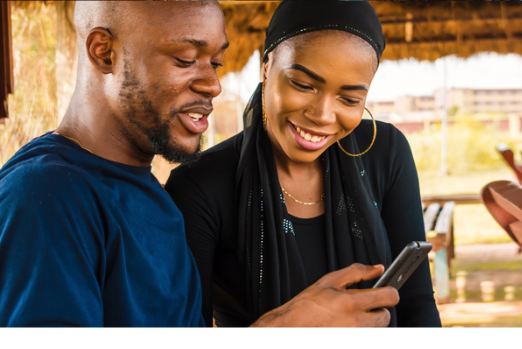According to McKinsey, Nigeria is now home to over 200 fintech standalone companies. And thanks to increasing smartphone penetration, many of these services use apps. Many of these apps have extensive marketing spending to drive user growth. In recent times, Abeg app and Patricia were announced as sponsors of Big Brother Nigeria.
Yet, beyond marketing spend, there’s another simple way that fintech startups are ensuring that people want to use their products, and it is through onboarding. Onboarding is the process of introducing a new user to your app or product.
Onboarding is essential for several reasons; it can lead to customer drop-offs if the process is difficult or complicated, or it can be such a delight that customers end up telling others about your app.
On Friday, May 21, VerifyMe Nigeria and TechCabal held the “Digital Identity Matters” event to talk about the importance of onboarding and the nuances that surround it. The event had Babs Ogundeyi, the CEO of Kuda Bank, Dayo Ademola, the Managing director of Branch Nigeria, and Esigie Aguele, the co-founder and CEO.
One of the critical things in onboarding a customer is the Know Your Customer (KYC) requirement.
What does the onboarding process look like at Kuda bank?
According to Babs Ogundeyi, Kuda has different levels of onboarding because not everyone in Nigeria has the same type of identification, and some people do not have any identification at all. In June 2020, the Director-General of the NIMC, Aliyu Aziz, said only 38% of Nigerians have any form of identification.
“The way we think about it is that we need to do enough to capture everybody and to give everybody a chance to be onboarded. So we have three tiers of customers, which is in line with the Central Bank guidelines for Microfinance banks.”
For Kuda, the minimum requirement for KYC is that the bank needs to know what you look like, so while it asks users to take a selfie as part of its onboarding, it uses technology to be sure that the person taking that selfie is the owner of the account.
It also relies on Bank Verification Number (BVN) to compare the pictures of account holders with what is in the system. These levels of verification are important to prevent forgeries, fraud and attempt to circumvent processes.
In a nutshell, the more documents you have to corroborate, the better your onboarding process. It also helps to think of them as a never-ending process because bad actors never stop trying and fintech startups need to stay ahead of them.
What would make the lives of customers easier?
While BVN has been a gamechanger for verifying customer details, there’s still some work to be done. According to Dayo Ademola, one important part of onboarding should be verifying the address of customers.
“Typically, you would ask for a utility bill but at the highest level of KYC, someone has to physically verify the address of the customer. What we are trying to do is, if we say that we are a bank in your pocket, then we have to find workarounds to make this happen.”
One workaround is comparing the address on a customer’s BVN with the address they have listed with a commercial bank. This is because commercial banks often physically verify the addresses of their customers.
It already sounds cumbersome in an industry where customers are asking for speed. “Being able to onboard pretty quickly is important; how quickly can customers download your app, verify their information and become an actual user instead of gaps where the app needs to verify.
“The top thing that new users are really looking for is speed. Another pattern we see is that customers start to drop off when you start asking for a lot of information, you see a lot of drop-offs.”
“Also, if you ask costumes to wait 24-48 hours before you verify them, that poses a problem.”
In the end, bank customers will still face lengthy wait times while a bank is running verifications checks in the background. Nigeria still functions as a low-trust environment; and despite accelerated changes to our financial ecosystem, banks and their customers agree that the KYC process is crucial to prevent fraud and cybercriminal activities.
Digital Identity Matters is powered by VerifyMe Nigeria in partnership with TechCabal. For more information, you can follow VerifyMe on Instagram, Twitter, LinkedIn, and Facebook.





















